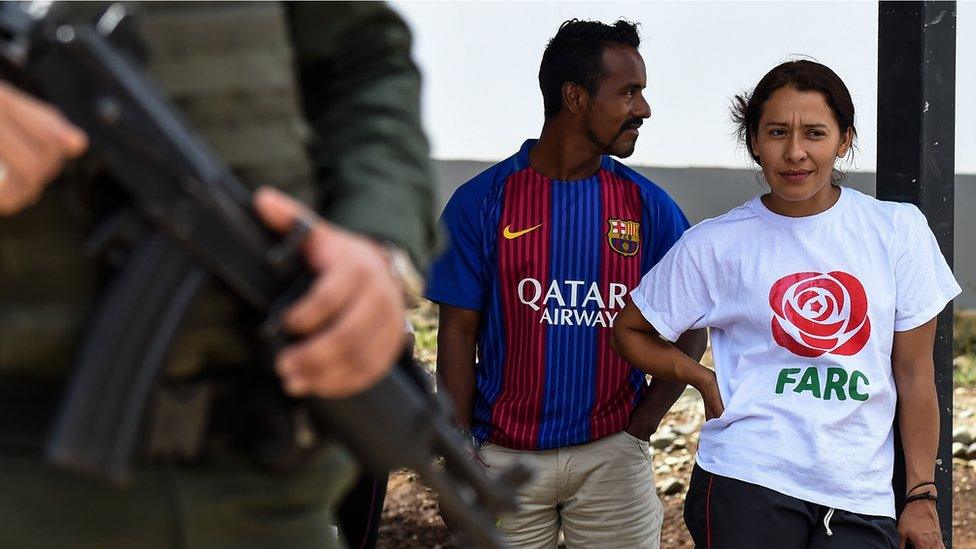Farc ex-rebel Jesús Santrich's disappearance causes concern
- Published
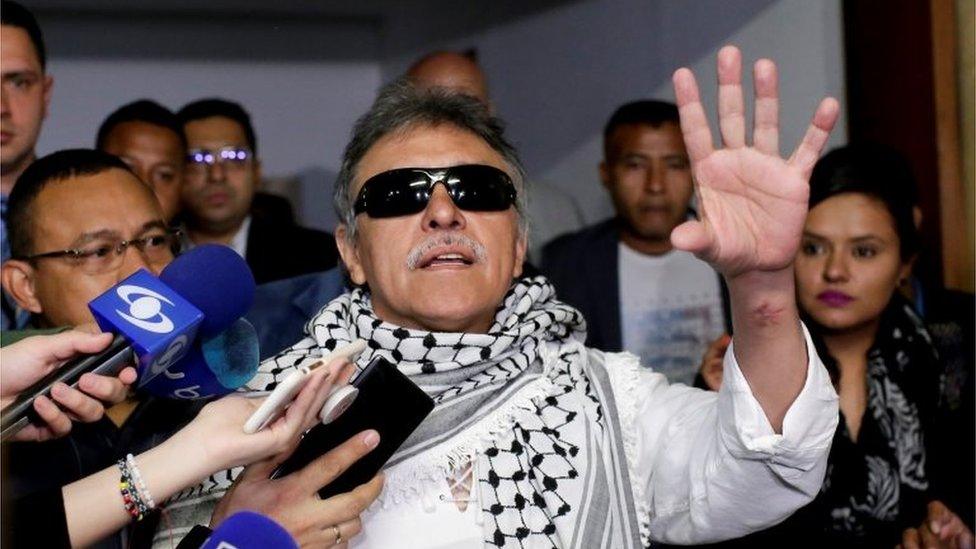
Jesús Santrich, who is blind, is one of the most recognisable former Farc leaders
A Colombian former rebel turned lawmaker remains missing less than a week before he is due to appear before the country's supreme court over allegations of drug smuggling.
The ex-rebel known as Jesús Santrich disappeared on Sunday and has not been heard from since.
His son said he feared he may have been kidnapped or killed but Colombian President Iván Duque said Santrich was trying to elude justice.
He was last seen on Saturday.
Who is Jesús Santrich?
Jesús Santrich is the nom de guerre of Seuxis Pausias Hernández Solarte, a former commander in the Revolutionary Armed Forces of Colombia (Farc), a Marxist rebel group founded in Colombia which engaged in a five-decade-long armed struggle against government forces and right-wing paramilitaries.
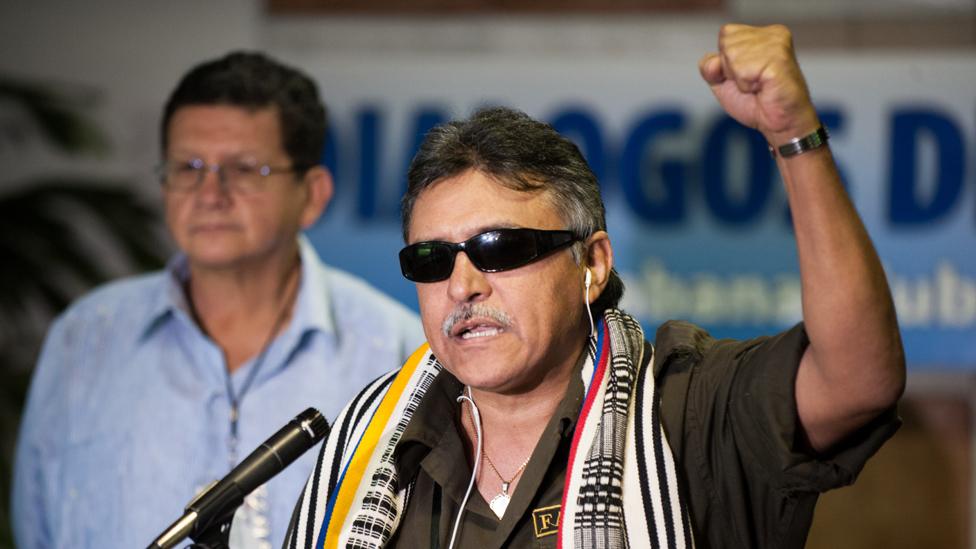
Jesús Santrich was considered one of the most hardline Farc negotiators
He joined the rebel group after a student friend of his was killed by Colombian security forces. Jesús Santrich was the name of the killed friend and it was in his honour that the philosophy student adopted it as his pseudonym.
Santrich is partially blind, having gradually lost his sight due to a genetic condition.
He was a member of the rebel group for 30 years and one of their most hardline negotiators in the process which led to a peace agreement in 2016.

More about Colombia's armed conflict:

What happened?
Santrich had been staying in a reintegration zone in Cesar province, about 30km (20 miles) from the Venezuelan border. These areas were created as part of the peace process between the government and the Farc for the rebels to gather, lay down their arms and receive training to help them reintegrate into civilian society.
Like other high-profile former rebels and public figures in Colombia, Santrich had bodyguards assigned to him by the national protection unit.
Members of the unit reported on Sunday that Santrich was not in the house he had been staying at. In his room, they found a note saying he would stay with one of his younger sons in the city of Valldeupar. He added that he did not "want a crowd" at his son's house and left instructions to be picked up and a contact name.
Colombia's protection unit said it was trying to verify the authenticity of the note.
Why has Santrich's disappearance caused a stir?
It is just the latest twist in a legal saga that saw Santrich detained in April 2018 after being indicted by a US grand jury. He is accused of conspiring to smuggle 10 tonnes of cocaine from Colombia to the US.
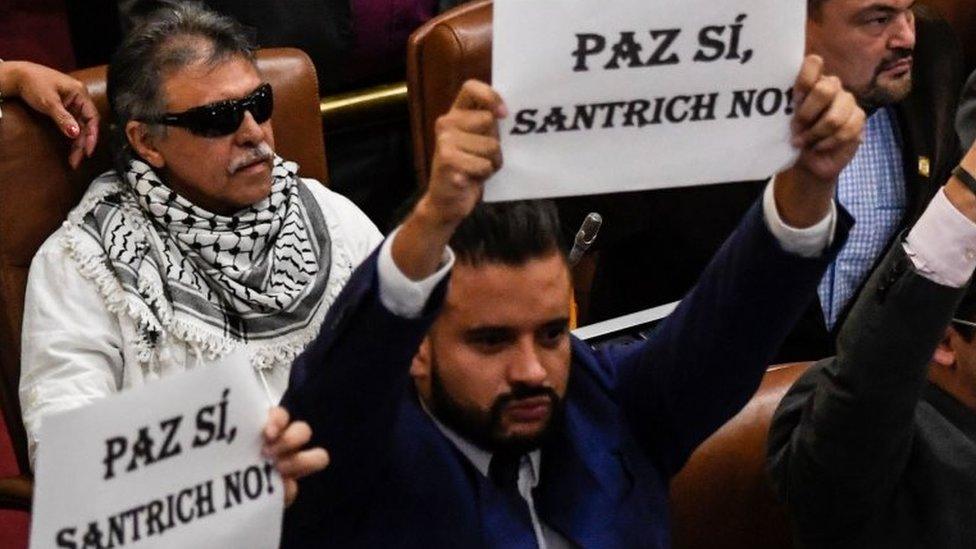
There were protests inside Congress when Santrich took up his seat
He was jailed before he could take up one of the 10 seats in Congress which under the terms of the peace agreement had been guaranteed to the party founded by the Farc rebels.
But in May, a special tribunal set up to hear cases related to Colombia's armed conflict ruled there was not enough evidence against Santrich.
The tribunal ordered his release, but as Santrich was leaving jail he was re-arrested by prosecutors who said they had fresh evidence.
He was again released on the orders of Colombia's supreme court, which argued that as he is a lawmaker only the highest court can order his arrest.
Before his disappearance, Santrich took up his seat in Congress while some conservative lawmakers held up placards in protest.
What has Duque said about it?
Colombia's conservative president, Mr Duque, told journalists he thought Santrich had left because of a hearing he is due to attend on 9 July and was "mocking" the Colombian legal system.
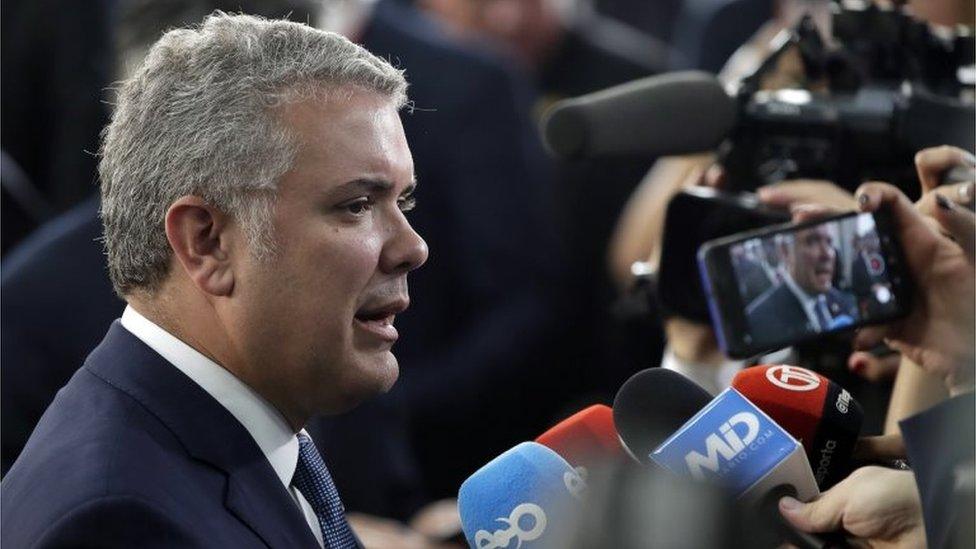
President Duque thinks Santrich has absconded to "elude justice"
"He has a hearing with the Supreme Court in these first days of July, and to see someone like that abandon his security detail... only shows that he wants to elude justice," he said.
Santrich's former comrades in the Farc - now members of a political party of the same name - urged Santrich to reaffirm his commitment to the peace deal. They also said that any member who chose to abandon the accord or commit crimes was solely responsible for the consequences.
Where could he be?
There has been much speculation in Colombian media, with many pointing to neighbouring Venezuela as a possible destination.
Venezuela's socialist government is not on good terms with Mr Duque's government and would be very unlikely to hand over Santrich if he was found, these publications point out.
The border between the two countries is porous and left-wing rebels regularly move across it undetected.
Santrich's son told Blu Radio that his father had not come to his home in Valledupar and expressed concern for his welfare.
His bodyguards urged him to contact them immediately, pointing out the many death threats Santrich had received in the past. Dozens of former rebels have been killed since the peace deal was signed
Santrich is not the first former Farc leader to disappear. The whereabouts of three other key figures are also unknown. The most senior of the three, Iván Márquez, appeared in a video in January accusing the government of betraying the terms of the peace agreement.
- Published19 June 2019
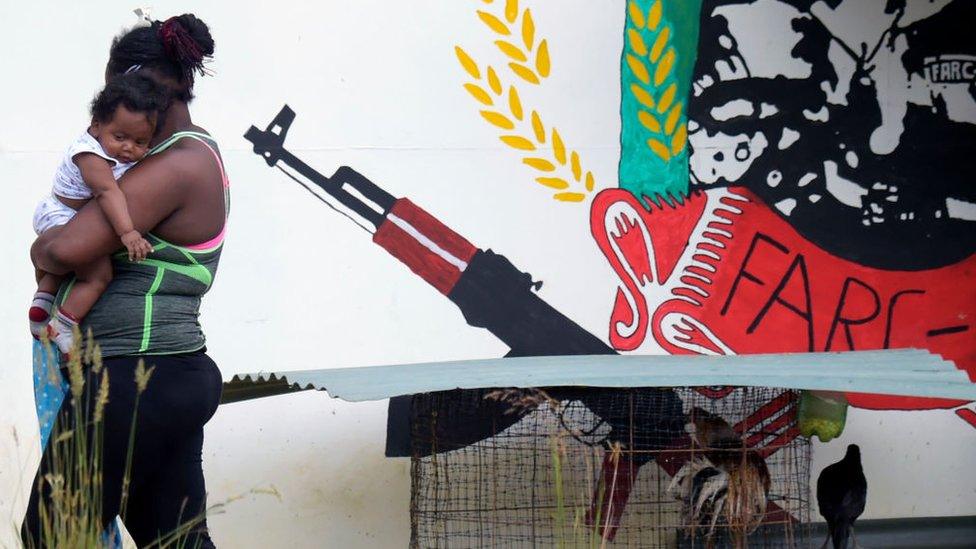
- Published16 May 2019
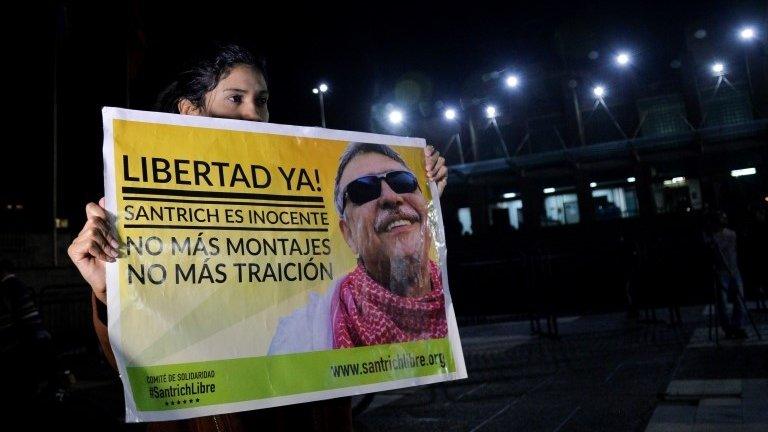
- Published3 February 2019
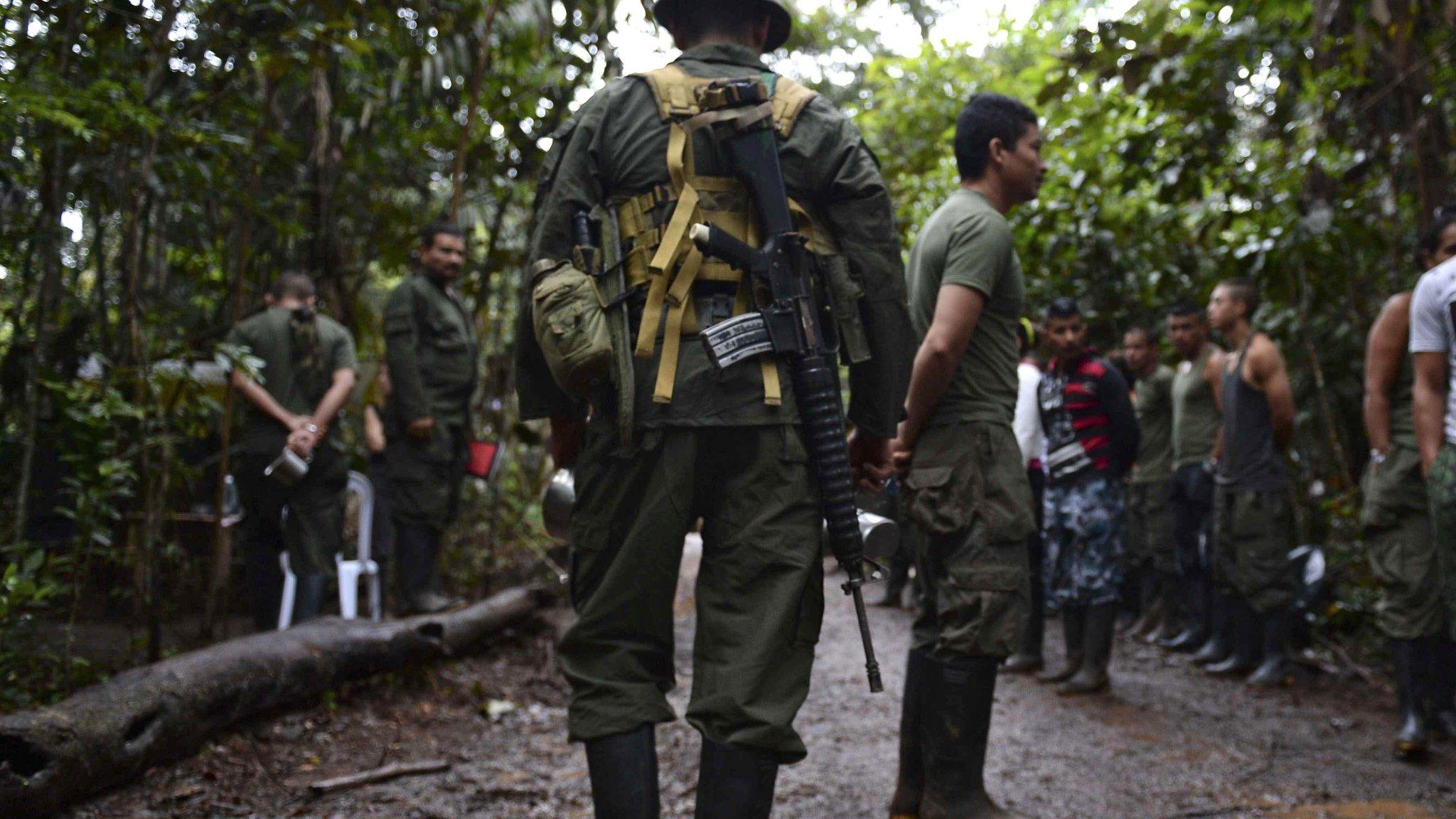
- Published13 January 2019
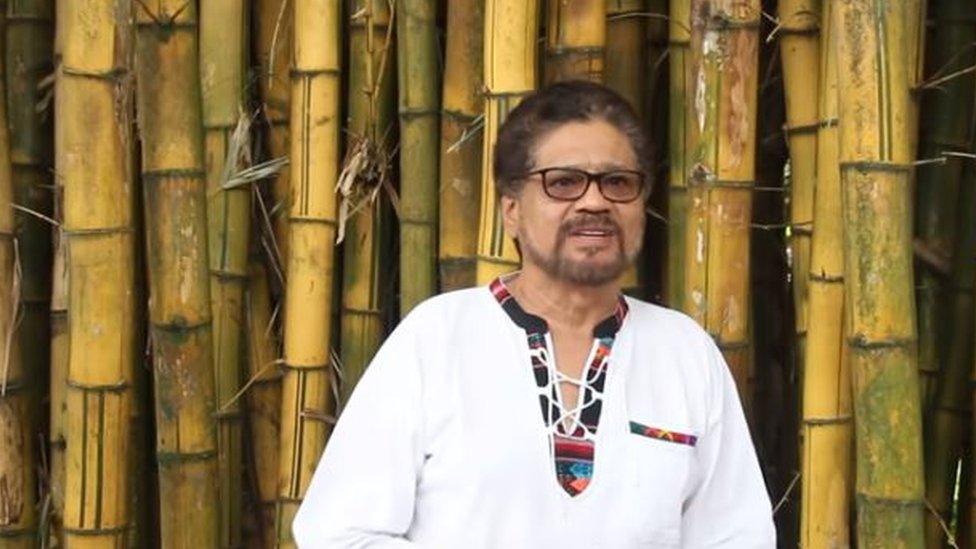
- Published1 January 2019
